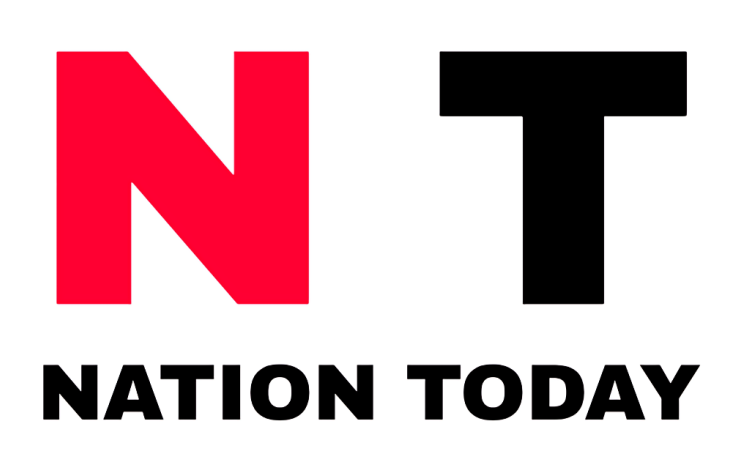In the ever-growing landscape of fintech, Razorpay stands out as a pioneer in revolutionizing online payment mechanisms in India. Founded in 2014 by Shashank Kumar and Harshil Mathur, two visionaries with a mission to streamline online payments, Razorpay has emerged as a leading player in the fintech industry. This case study delves into the journey of Razorpay, exploring its inception, growth trajectory, business model, strategic partnerships, challenges, and future plans.
Razorpay was born out of the founders’ realization of the hectic and inefficient nature of online payment gateways in India. Shashank Kumar and Harshil Mathur, alumni of IIT Roorkee, embarked on a journey to simplify the online payment landscape, driven by their experiences in the tech industry and their vision to empower businesses with seamless payment solutions.
At the heart of Razorpay’s mission lies the commitment to make online payments accessible, transparent, and hassle-free for businesses of all sizes. The company envisions a future where businesses can effortlessly manage their finances, accept payments, and access capital, thereby fostering growth and innovation in the digital ecosystem.

Business Model and Revenue Streams:
Razorpay works on a robust business model, offering a range of developer-friendly APIs and integration solutions for businesses to accept, process, and disburse payments. The company earns revenue primarily through transaction fees, charging a nominal 2% fee on every subscription collection transaction processed through its gateway. Additionally, Razorpay has diversified its revenue streams with products like RazorpayX and Razorpay Capital, contributing to its overall financial health and sustainability.
Financial Performance:
Revenue:
Razorpay has showcased impressive revenue growth and financial performance since its inception. As of the latest financial reports, the company’s operating revenue stood at Rs 2,279 crore in FY23, marking a substantial increase from Rs 1,481 crore in FY22. Despite a significant rise in total expenses, which reached Rs 2,283 crore in FY23 compared to Rs 1,476 crore in FY22, Razorpay managed to maintain profitability. The company reported a profit of Rs 7.2 crore in FY23, slightly lower than the Rs 7.3 crore profit recorded in FY22. These figures reflect Razorpay’s ability to generate substantial revenue while effectively managing its expenses, resulting in consistent profitability.
| Financial Year | Operating Revenue (in crore) | Total Expenses (in crore) | Profit/Loss (in crore) |
|---|---|---|---|
| FY22 | Rs 1,481 | Rs 1,476 | Profit of Rs 7.3 crore |
| FY23 | Rs 2,279 | Rs 2,283 | Profit of Rs 7.2 crore |
Funding:
Razorpay’s journey has been fueled by strategic investments from leading venture capital firms and institutional investors. The company has successfuly raised a total of $815.7 million in funding across various rounds. Notable investors include Alkeon Capital, Lone Pine Capital, Tiger Global, Sequoia Capital India, GIC, Y Combinator, and Mastercard, among others. The most recent funding round was a Series F round completed on December 19, 2021, which raised $375 million led by Alkeon Capital and Lone Pine Capital. Razorpay’s ability to attract significant funding underscores investor confidence in its business model and growth potential.
| Date | Funding Round | Deal Amount | Lead Investors |
|---|---|---|---|
| May 9, 2022 | Secondary Market Round | $74.18 mn | Lightspeed |
| Dec 19, 2021 | Series F | $375 mn | Alkeon Capital, Lone Pine Capital |
| Sep 20, 2021 | Venture Round | – | Salesforce |
| Apr 19, 2021 | Series E | $160 mn | GIC, Sequoia Capital |
| Oct 12, 2020 | Series D | $100 mn | GIC, Sequoia Capital |
| Jun 18, 2019 | Series C | $75 mn | Ribbit Capital, Sequoia Capital |
| Jan 15, 2018 | Series B | $20 mn | Tiger Global |
| Jul 1, 2016 | Corporate Round | – | Mastercard |
| Oct 27, 2015 | Series A | $9 mn | Tiger Global |
| Mar 23, 2015 | Seed Round | $2.6 mn | – |

Acquisitions:
Razorpay has strategically made acquisitions to expand its capabilities, enter new markets, and enhance its product offerings. The company has acquired a total of eight companies as part of its growth strategy. Some notable acquisitions include:
- BillMe (September 12, 2023): Razorpay’s latest acquisition, BillMe, further strengthens its position in the fintech ecosystem by integrating additional capabilities into its payment solutions.
- PoshVine (September 27, 2022): The acquisition of PoshVine expanded Razorpay’s reach and offerings, enabling it to tap into new market segments and customer demographics.
- Ezetap (August 18, 2022): The acquisition of Ezetap bolstered Razorpay’s presence in the digital payments space, enhancing its technology stack and product portfolio.
- IZealiant Technologies (March 16, 2022): The acquisition of IZealiant Technologies provided Razorpay with access to specialized expertise and innovative solutions, driving further innovation and growth.
- Curlec (February 8, 2022): Razorpay’s acquisition of Curlec marked its entry into the international payments market, enabling it to offer tailored solutions for businesses operating globally.
Razorpay Strategic Partnerships:
Razorpay has made strategic partnerships with leading players in the industry, leveraging synergies to enhance its product offerings and reach. Collaborations with companies like Truecaller, Axis Bank, Mastercard, and PayPal have strengthened Razorpay’s position in the market and facilitated innovation in payment technologies.

Competitive Landscape:
In a competitive market, Razorpay faces competition from both established players and emerging fintech startups. Rivals such as InstaMojo, PayPal, Paytm Business, and PayU pose challenges, driving Razorpay to continuously innovate and differentiate its offerings to stay ahead in the race.
Innovations and Product Expansion:
Razorpay’s commitment to innovation is evident in its product portfolio, which includes cutting-edge solutions like RazorpayX, Smart Collect, Subscriptions, and Invoices. The company continuously invests in research and development to enhance its offerings, catering to the evolving needs of businesses and consumers alike.

Challenges and Controversies:
Despite its success, Razorpay has encountered challenges along the way, including cybersecurity threats and controversies. Instances of cybercrime and regulatory scrutiny have tested the company’s resilience, underscoring the importance of robust security measures and ethical business practices.
Awards and Recognition:
Razorpay’s achievements have been acknowledged through various awards and accolades, including the prestigious “Startup of the Year” award at the ET Startup Awards. The company’s commitment to excellence and innovation has earned it recognition as a top workplace and a leader in digital payment facilitation.

Future Outlook and IPO Plans:
Looking ahead, Razorpay is poised for further growth and expansion, with plans to conduct an initial public offering (IPO) within the next two years. The company’s strategic decision reflects its confidence in the future prospects of the fintech industry and its commitment to creating long-term value for stakeholders.
Razorpay’s journey from a startup to a unicorn exemplifies the transformative power of innovation and entrepreneurship in the fintech sector. With its customer-centric approach, strategic partnerships, and relentless pursuit of excellence, Razorpay has emerged as a trailblazer in the Indian payments landscape, driving digital transformation and empowering businesses to thrive in the digital age. As it embarks on the next phase of its journey with plans for an IPO, Razorpay is well-positioned to shape the future of finance and redefine the way payments are made and processed in India and beyond.
For more such articles visit NationToday

